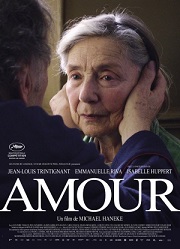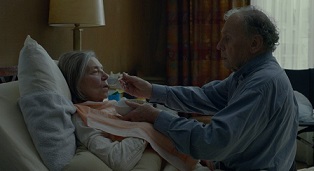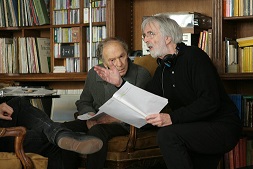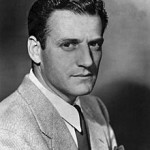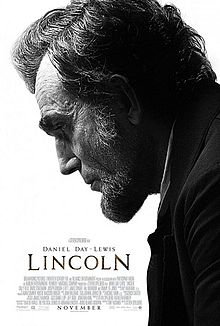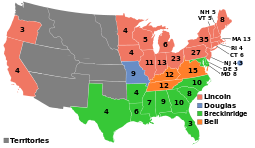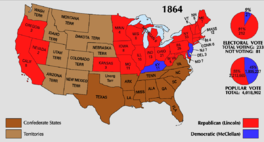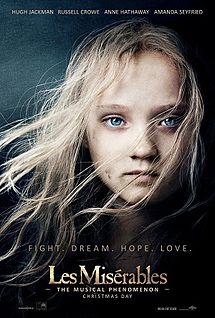 The movie rendition of the hit musical based on Victor Hugo’s original story was quite good. The movie used computer graphics well to reproduce the streets of Paris during that time—complete with the dirty, crooked teeth and stained clothing of the characters—and the beautiful cinematography provides a fresh angle to the familiar story. Furthermore, the talented actors’ singing is heartfelt. Russell Crowe, Anne Hathaway, and the rest of the cast sing very well, but also capture the darkness of the music, which makes this more than just a rehashing of a simple musical. Les Misérables begins after Napoleon I’s downfall in 1815 with Jean Valjean’s release from prison; before passing away in 1833, Jean Valjean witnesses the failed June Rebellion in 1832 that happens after the July Revolution in 1830.
The movie rendition of the hit musical based on Victor Hugo’s original story was quite good. The movie used computer graphics well to reproduce the streets of Paris during that time—complete with the dirty, crooked teeth and stained clothing of the characters—and the beautiful cinematography provides a fresh angle to the familiar story. Furthermore, the talented actors’ singing is heartfelt. Russell Crowe, Anne Hathaway, and the rest of the cast sing very well, but also capture the darkness of the music, which makes this more than just a rehashing of a simple musical. Les Misérables begins after Napoleon I’s downfall in 1815 with Jean Valjean’s release from prison; before passing away in 1833, Jean Valjean witnesses the failed June Rebellion in 1832 that happens after the July Revolution in 1830.
Marius, the man who becomes the husband of Jean Valjean’s adopted daughter Cosette, is said to be the projection of author Victor Hugo, but I don’t understand this Marius very well. Marius wishes to defy his affluent grandfather by participating in the June Rebellion, but while all of his comrades died together in the revolt, Marius is rescued by Jean Valjean and he ends up marrying Cosette with a luxurious wedding supported by his grandfather and they live happily ever after. So what does it say about Victor Hugo that he is supposedly the model for the character of Marius? Which part of him is being projected?
Oppressed in the Bourbon era by noble aristocrats and clergymen, the bourgeoisie spearheaded people into a revolt, attacking the Bastille prison on July 14, 1789 and starting the French Revolution. Radical views spread and upon the execution of Louis XVI in 1792, the first republican form of government and its Reign of Terror arrived. Within this chaos, it was Napoleon Bonaparte that captured the spirit of the people and, after the coup d’etat of Brumaire in 1799, he established the autocratic Consulate. In 1804, Napoleon established an imperial system (the First Empire of France).
Victor Hugo was born in 1802, his father an officer in Napoleon’s army and his mother an ardent royalist. As a matter of course, there was a lot of discord between his parents, which cast a dark shadow on his youth. Because his parents were separated, Victor Hugo would spend most of his early childhood with his mother. When Napoleon fell in 1814, Victor’s father lost his status as a Spanish aristocrat and was demoted from being the commander of his squadron.
After the downfall of Napoleon, the other countries denied the French Revolution at the Congress of Vienna and restored the pre-revolution condition of France so as to maintain the balance of power between all the large powers. The Congress of Vienna, after all, was the way for the five Great Powers of Europe–Britain, Germany (Austria and Germany), France, Italy (and Vatican), and Russia –to come together and decide the relations of these powers , until World War II. Louis XVIII, the younger brother of Louis XVI, succeeded the throne as the next king of France. Louis XVIII had fled France at the height of the French Revolution and taken refuge in Germany, moving from place to place and condemning the French Republic. When Napoleon briefly escaped from his exile in Elba in 1815, Louis XVIII fled France again, but returned to the throne after Napoleon fell for the last time. After Louis XVIII died, his younger brother Charles X (he, like his older brother Louis XVIII, had abandoned Louis XVI in France and taken refuge in London after the French Revolution broke out) succeeded the throne and further instituted reactionary policies, such as compensation for exiled aristocrats.
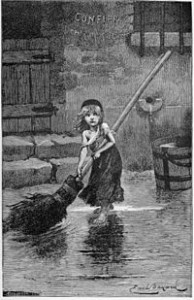 This period of Bourbon restoration was the time Victor Hugo was concentrated on his family. After his mother passed away in 1821, he married his childhood friend Adèle Foucher (who is said to be the model for Cosette) and they had their first son in 1823 and their first daughter in 1824. In 1825, Hugo received the highest decoration in France—Legion d’honneur—gaining associate aristocrat status. Also, his relationship with his father, which had been estranged throughout his childhood, improved. Hugo’s understanding of Napoleon, who he had hated before, increased and he gradually began to respect Napoleon. Hugo had his second son in 1826, his third son in 1828, and his second daughter in 1830. He had pension from Louis XVIII allowing him to live a good and affluent life, but his success as a writer had already begun.
This period of Bourbon restoration was the time Victor Hugo was concentrated on his family. After his mother passed away in 1821, he married his childhood friend Adèle Foucher (who is said to be the model for Cosette) and they had their first son in 1823 and their first daughter in 1824. In 1825, Hugo received the highest decoration in France—Legion d’honneur—gaining associate aristocrat status. Also, his relationship with his father, which had been estranged throughout his childhood, improved. Hugo’s understanding of Napoleon, who he had hated before, increased and he gradually began to respect Napoleon. Hugo had his second son in 1826, his third son in 1828, and his second daughter in 1830. He had pension from Louis XVIII allowing him to live a good and affluent life, but his success as a writer had already begun.
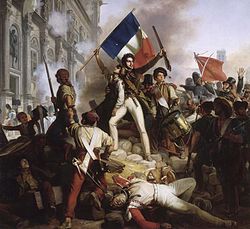 Charles X carried out reactionary politics, limiting freedom of speech, refusing most bourgeois the right to vote, and not defending the interest of the middleclass bourgeoisie, so intellectuals and the poor working-class grew unsatisfied. In addition, Charles X initiated an invasion of Algeria which resulted in political disgrace and debt. His repeated poor political decisions caused the bourgeoisie to lead a revolution in July in 1830. Victor Hugo was a conservative aristocrat, but on the other hand, he was a well-respected intellectual and he did not oppose the July Revolution; the leaders of the Revolution were essayists and close friends of his and Hugo secretly thought Charles X an incompetent king. During the July Revolution, even the government troops whose job it was to suppress the revolution didn’t have the will to fight against the revolutionary army, thus Charles X had to employ mercenary soldiers from foreign countries in a hurry. The July Revolution in France began on July 27, 1830 and went until the 29th, lasting only 3 days. This revolution caused Charles X to flee France; Louis-Philippe, a distant relative of the Bourbons and known for his liberalism, was crowned and established a constitutional monarchy (July Monarchy). Louis-Philippe lived in the United States from 1797 to 1799 and experienced the American Revolution, thus the public had high expectations for him.
Charles X carried out reactionary politics, limiting freedom of speech, refusing most bourgeois the right to vote, and not defending the interest of the middleclass bourgeoisie, so intellectuals and the poor working-class grew unsatisfied. In addition, Charles X initiated an invasion of Algeria which resulted in political disgrace and debt. His repeated poor political decisions caused the bourgeoisie to lead a revolution in July in 1830. Victor Hugo was a conservative aristocrat, but on the other hand, he was a well-respected intellectual and he did not oppose the July Revolution; the leaders of the Revolution were essayists and close friends of his and Hugo secretly thought Charles X an incompetent king. During the July Revolution, even the government troops whose job it was to suppress the revolution didn’t have the will to fight against the revolutionary army, thus Charles X had to employ mercenary soldiers from foreign countries in a hurry. The July Revolution in France began on July 27, 1830 and went until the 29th, lasting only 3 days. This revolution caused Charles X to flee France; Louis-Philippe, a distant relative of the Bourbons and known for his liberalism, was crowned and established a constitutional monarchy (July Monarchy). Louis-Philippe lived in the United States from 1797 to 1799 and experienced the American Revolution, thus the public had high expectations for him.
Louis-Philippe was very popular with the bourgeoisie. Victor Hugo also thought highly of the king saying something to the effect of, “He is the perfect king who is superior in all ways,” and in 1845, Hugo was awarded the rank of viscount by Louis-Philippe. Because of his position as a noble, he began to show interest in politics. Hugo believed the July Monarchy resembled an ideal system of government where intellectuals support a wise monarch, such as Louis-Philippe.
However, there is a decisive difference between Victor Hugo and Marius. Marius was a poor lawyer and a member of the Republican secret society Friends of the ABC. Bourgeois in origins, his mother died when he was a child and his maternal grandfather raised him; when he was 17 years old, sparked by the death of his father who worked with Napoleon, Marius devoted himself to Bonapartism and ran away from his grandfather who supported the restoration of the monarchy. Marius of Les Misérables did not participate in the July Revolution, but the June Rebellion two years later. The June Rebellion (1832) was made of more radical students and laborers and was suppressed in only two days.
The political dynamics in France gradually switched to bourgeoisie versus workers. In 1848, the workers and peasants came together in a revolution in February; Louis-Philippe abdicated and fled to Great Britain, marking the end of the July Monarchy. With the abolishment of the monarchy, the constitution was established in 1848 and France shifted to a republican form of government (the Second Republic). In June of this year, laborers were again invoked to rise up in revolt in the June Days Uprising, not to be confused with the June Rebellion of 1832. Eventually, a presidential election was carried out in November where Napoleon’s nephew, Louis Napoleon Bonaparte was elected as president. After that, Louis Napoleon Bonaparte declared himself emperor (Napoleon III) and in 1852, France started its second imperial government.
Even after Louis-Philippe took refuge in Great Britain, Victor Hugo stubbornly advocated for the young adopted grandson of Louis-Philippe in Paris for the throne. The Second Republic gradually became a dictatorship under Napoleon III, who viewed Hugo as an enemy. After the coup by Napoleon III in 1851, Hugo, fearing for his life, took refuge in Brussels, the capital of Belgium, where he spread criticisms of Napoleon III. However, the hand of oppression spread to Belgium so Hugo decided to flee further to the remote island of Great Britain. At this time, he began to record the failure of the June Rebellion in his book Les Misérables, which would later become a best-seller across the world.
In 1870, the Franco-Prussian War broke out, which ended in a crushing defeat for France and Napoleon III was taken as a prisoner of war by the Prussian states. Because of this, Hugo was determined to return to France. After 19 years, he would step on the soil of his motherland and be welcomed by the people of France as a world-renowned literary master and national hero.
In order to get the Franco-Prussian War under control, a provisional government was established and France accepted a humiliating peace treaty proposed by German Chancellor Bismarck. Because of this, the people of France flew into a rage, rose in revolt, and formed the Paris Commune, which professed itself to be a socialist government. This Commune’s social policy included better working conditions and it is said to be the world’s first socialist administration, but the leaders of the Paris Commune were unable to resolve internal conflict and were suppressed immediately by government troops. Many members of the commune were shot down and executed by the military. Gaining political stability in France was used as justification for the suppression of the Paris Commune.
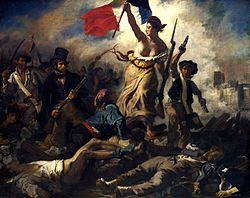 Nineteenth century in Europe was defined by royalist factions, the bourgeoisie playing a central role in republican states, military power, and revolts by armed laborer/proletariat forces that were influenced by Marxism—all of which was part of class struggle and the cycle of ideological strife. Hugo aimed for a political system with a progressive monarch supported by a wise bourgeoisie, a rational constitution, and a general election. This political system is similar to one that Great Britain sought and the July Monarchy that was established after the sacrifice of the July Revolution. However, after the time Hugo spent in exile, his political insights deepened. He felt as if in order to save his country, he must rescue “les misérables” (everybody in poverty), the people who are suffering from grave poverty. Therefore, depicting the darkness of the June Rebellion adds depth to Les Misérables, instead of just the mere rosy glory of the July Revolution.
Nineteenth century in Europe was defined by royalist factions, the bourgeoisie playing a central role in republican states, military power, and revolts by armed laborer/proletariat forces that were influenced by Marxism—all of which was part of class struggle and the cycle of ideological strife. Hugo aimed for a political system with a progressive monarch supported by a wise bourgeoisie, a rational constitution, and a general election. This political system is similar to one that Great Britain sought and the July Monarchy that was established after the sacrifice of the July Revolution. However, after the time Hugo spent in exile, his political insights deepened. He felt as if in order to save his country, he must rescue “les misérables” (everybody in poverty), the people who are suffering from grave poverty. Therefore, depicting the darkness of the June Rebellion adds depth to Les Misérables, instead of just the mere rosy glory of the July Revolution.
Hugo passed away at 84 years of age in Paris on May 22, 1885 and was buried with honor in the Pantheon as a national hero and literary master.
日本語→
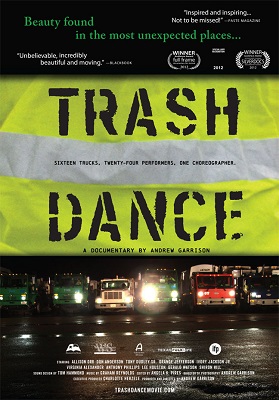 This documentary is beautiful and very heartwarming, and I deeply appreciate the sentiments of the movie. This movie impressively combines two seemingly incompatible things: trash and dance. These, oddly, happen to be two of my interests, so watching this movie was a no-brainer for me. For anyone who cannot believe how those two things can go together, or how this movie could be heartwarming, I hope to convince you that this movie is definitely worth watching. The artistic visions of both the director of the film and the choreographer of the dance piece were very impressive. In short, the choreographer is able to appreciate a beauty in the routine movements of collecting trash and, more importantly, spread her appreciation of the work of invisible laborers.
This documentary is beautiful and very heartwarming, and I deeply appreciate the sentiments of the movie. This movie impressively combines two seemingly incompatible things: trash and dance. These, oddly, happen to be two of my interests, so watching this movie was a no-brainer for me. For anyone who cannot believe how those two things can go together, or how this movie could be heartwarming, I hope to convince you that this movie is definitely worth watching. The artistic visions of both the director of the film and the choreographer of the dance piece were very impressive. In short, the choreographer is able to appreciate a beauty in the routine movements of collecting trash and, more importantly, spread her appreciation of the work of invisible laborers. In this movie, the choreographer shadows trash and recycling workers in Austin, Texas for a year and designs a dance piece using the motions of the workers and their vehicles. The choreographer—as a Caucasian woman working in the arts—is definitely looked on suspiciously as an outsider when she enters a workforce that is primarily black and Hispanic men. You can see the cynicism and disinterest of the workers at first, but slowly the workers warm up to her and her vision. To the workers’ surprise, the choreographer learns about all the different departments and incorporates the unique aspects of each in the dance piece. Her genuine interest in their jobs and them as individuals is able to convince them to spend extra time for rehearsals for the dance piece. The choreographer also calls upon the unique talents of individuals (breakdancing, harmonica, rapping, etc.), making the dance for the workers, not just for herself. It means a lot to be appreciated for the hard work you do every day, as well as for the parts outside of work that you are proud of, and the viewers can see how excited the workers are to be seen as individuals. It is wonderful seeing the light and excitement in the eyes of these underappreciated workers when they talk about how it felt to perform in front of their families and thousands of other people.
In this movie, the choreographer shadows trash and recycling workers in Austin, Texas for a year and designs a dance piece using the motions of the workers and their vehicles. The choreographer—as a Caucasian woman working in the arts—is definitely looked on suspiciously as an outsider when she enters a workforce that is primarily black and Hispanic men. You can see the cynicism and disinterest of the workers at first, but slowly the workers warm up to her and her vision. To the workers’ surprise, the choreographer learns about all the different departments and incorporates the unique aspects of each in the dance piece. Her genuine interest in their jobs and them as individuals is able to convince them to spend extra time for rehearsals for the dance piece. The choreographer also calls upon the unique talents of individuals (breakdancing, harmonica, rapping, etc.), making the dance for the workers, not just for herself. It means a lot to be appreciated for the hard work you do every day, as well as for the parts outside of work that you are proud of, and the viewers can see how excited the workers are to be seen as individuals. It is wonderful seeing the light and excitement in the eyes of these underappreciated workers when they talk about how it felt to perform in front of their families and thousands of other people.  Through the dance piece, there is an appreciation for the anonymous blue collar workers that keep our society running, as well as a beauty given to a profession that is looked upon with disdain and disgust. The choreographer says her main intention of this project and her dance piece is to make people feel a connection with the people around them that may cross paths with but never know. Thousands of people showed up in the rain to watch this show live, and I think they left with that feeling. The director of the movie also deserves recognition for being able to capture the charming personalities of the different workers. I could not help but be drawn into their stories.
Through the dance piece, there is an appreciation for the anonymous blue collar workers that keep our society running, as well as a beauty given to a profession that is looked upon with disdain and disgust. The choreographer says her main intention of this project and her dance piece is to make people feel a connection with the people around them that may cross paths with but never know. Thousands of people showed up in the rain to watch this show live, and I think they left with that feeling. The director of the movie also deserves recognition for being able to capture the charming personalities of the different workers. I could not help but be drawn into their stories.
